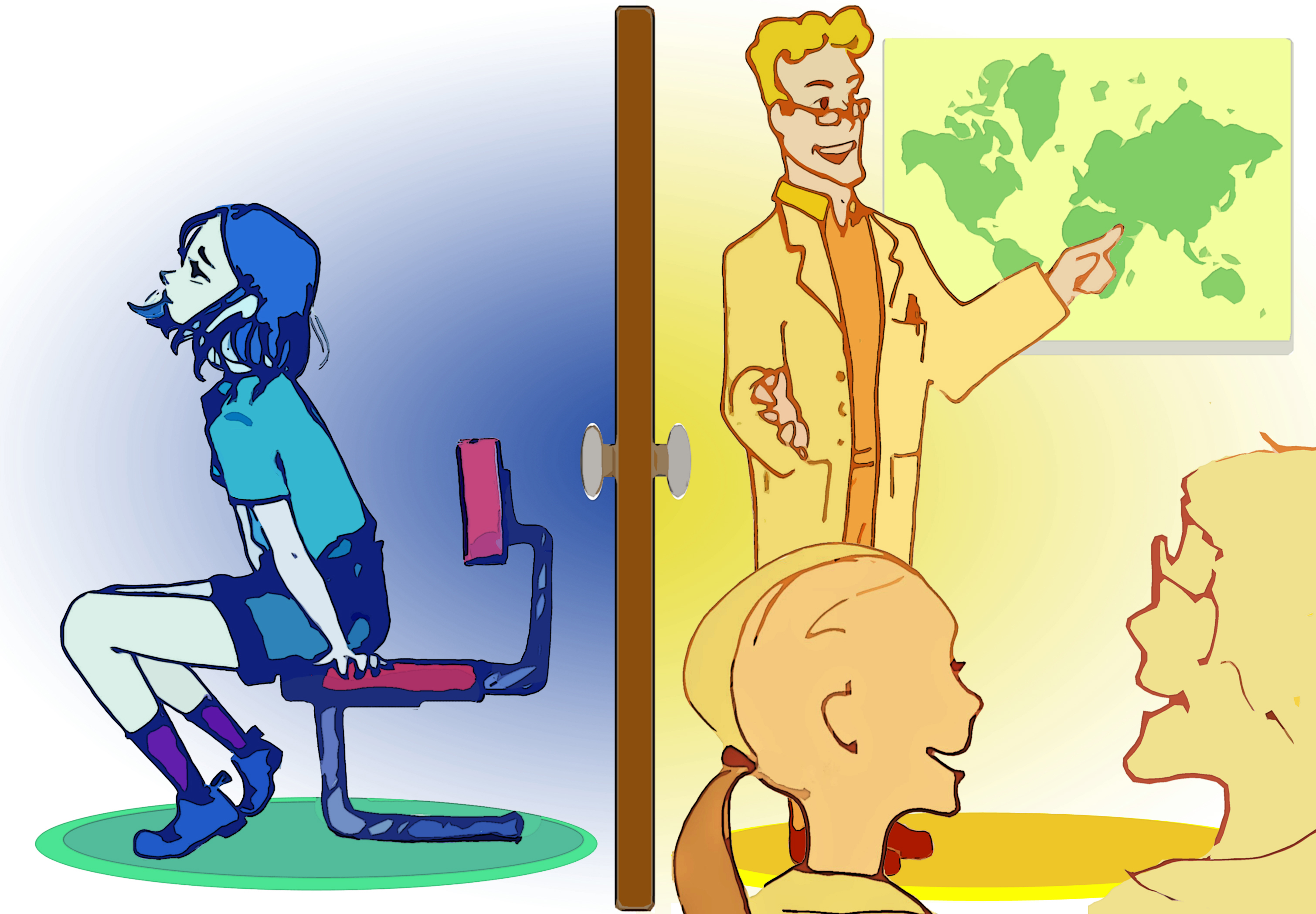Casey Kovarik: UCLA’s Depression Grand Challenge should focus more on aiding students

(Kelly Brennan/Daily Bruin senior staff)
By Casey Kovarik
Nov. 3, 2015 12:24 a.m.
I guess we should have known; they call it a “research institution,” not a “student institution.”
Recently, UCLA has launched a number of “Grand Challenge” projects designed to face some of the largest, most pressing problems of our time. One of these, the Depression Grand Challenge, aims to find the root causes of depression and solutions on a global scale.
However, this announcement, which came last week, comes with a particular taste of irony.
In the same two-week period UCLA launched a global initiative aimed at reducing depression, it also cut the number of one-on-one sessions a student could receive at Counseling and Psychological Services.
And the reduction couldn’t have come at a worse time. At UCLA, the highly competitive and stressful environment often leads to increased stress and more serious mental disorders. So on one hand, the university is engaging in an ambitious effort to halt depression. On the other, it’s reducing its students’ ability to actually combat their very present mental illnesses.
This paradox is unacceptable. As such, the university needs to incorporate a stronger student component into its Depression Grand Challenge.
A large component of the research will be a 100,000-person study which will identify the level of risk or suffering a person is experiencing in regards to depression. In this study, participants will receive treatment according to the new research done by the project.
READ MORE: UCLA Grand Challenge aims to tackle depression on global scale
The project is still in the early stages, but they do have plans to work with CAPS and the Arthur Ashe Student Health and Wellness Center, as well as student groups to focus on health and wellness and publicize and refer students to the study. The interactive student component will be focused on education and advocacy as well as reducing the stigma of depression, but it is not intended to replace CAPS services.
And that’s the key here. Publicity and involvement in a research study can only go so far. There needs to be real, tangible benefits administered to all students. While an increase in CAPS appointments could help, it doesn’t necessarily have to be just that.
Among other ideas, the school could invest more in programming to release stress on campus or in mental health professionals on the Hill. It could also invest in peer facilitators in order to remove some of the burden from CAPS.
But the fact remains: If there is going to be an investment in ending depression, there has to be an equal investment in services for students. It’s only fair.
With the University of California Student Health Insurance Plan, CAPS is the only option for counseling and psychological therapy.
Therapy not covered by insurance ranges from about $100-$250 an hour and there aren’t many options in Westwood for counseling outside UCLA. This makes it even more crucial to provide additional benefits to students.
The Depression Grand Challenge project has an estimated cost of $525 million for the first 10 years alone. This would be funded through federal grants, research grants and donors. With a budget that large, a portion should be coming back to students.
And while it’s true that UCLA can’t reallocate that money towards CAPS because it’s earmarked, the optics of such an issue are horrible. It looks as if the university cares more about its research than its students – and in the process, the students are suffering.
The complexities of the budgeting at such a large institution are not an excuse for underfunding CAPS and leaving students with depression or other mental illness without sufficient resources. There are solutions within the student resource funding and there are ways that research projects can engage with students.


